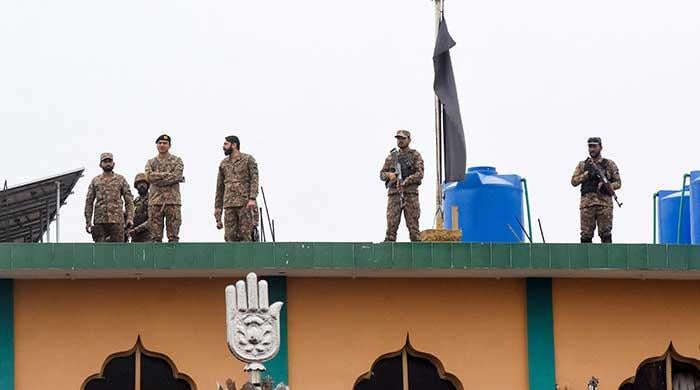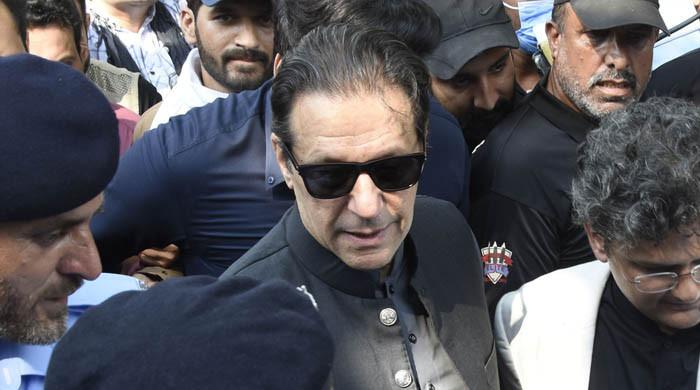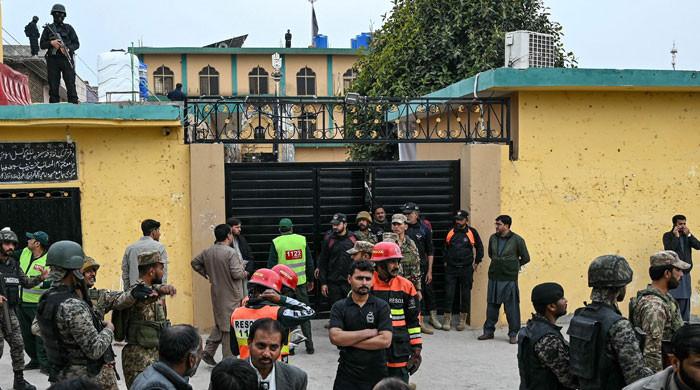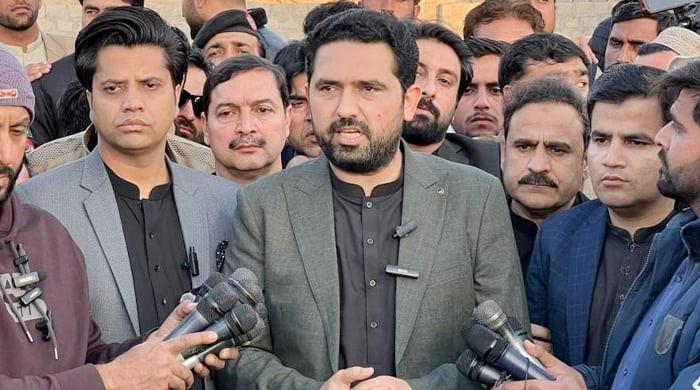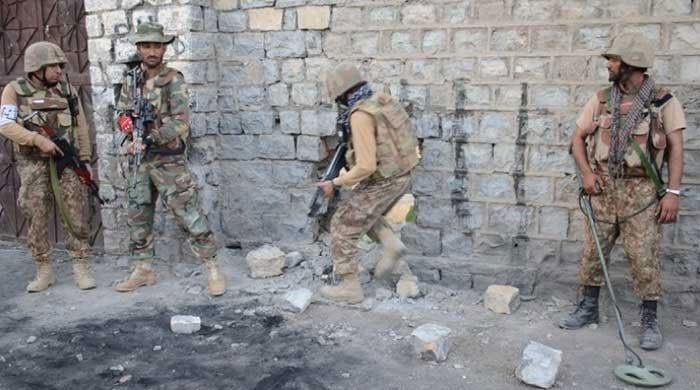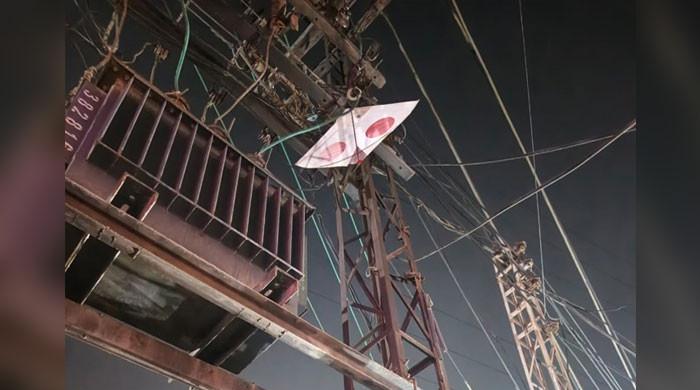Pakistani students win Oxford University debate against Indian team
Proposition, represented by speakers from Pakistan, secured landslide victory, winning 160 votes to 51
November 28, 2025
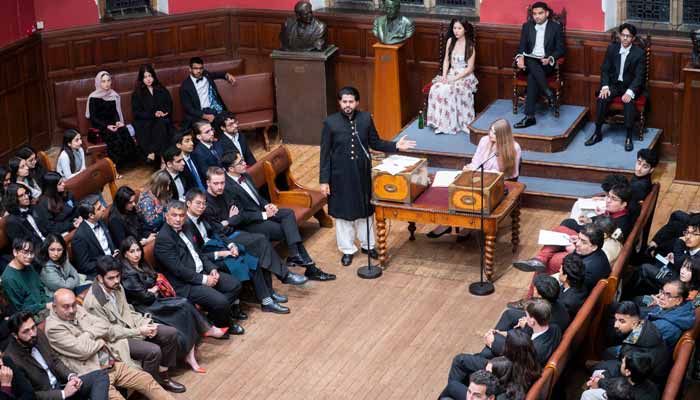
LONDON: Three Pakistani students at Oxford University won a debate against Indian counterparts in an exciting and closely-watched debate on India’s populist national security policy geared to incite hate against Pakistan for domestic purposes.
In the Oxford Union debate, India withdrew its original high-profile team and instead fielded a lower-profile new panel consisting of J Sai Deepak, Pandit Satish Sharma, and Deorchan Banerjee against Pakistani students Moosa Haraj, Israr Khan Kakar and Ahmed Nawaz Khan who defeated India’s panel through logic and arguments.
The Indian side was to include former army chief General (retd) MM Naravane, former law minister and academic Dr Subramanian Swamy and former Rajasthan deputy chief minister Sachin Pilot against the Pakistani side — former Minister of State for Foreign Affairs Hina Rabbani Khar, General (retd) Zubair Mahmood Hayat, and Dr Mohammad Faisal, Pakistan’s High Commissioner to the United Kingdom
The Oxford Union, one of the world’s most renowned debating chambers, hosted the debate on the motion “This House Believes India’s Policy Towards Pakistan is a Populist Strategy Sold as Security Policy.” In a decisive outcome, the proposition, represented by speakers from Pakistan, secured a landslide victory, winning 160 votes to 51.
The debate drew significant attention from students, diplomats, and observers interested in South Asian politics, especially following the pre-debate controversy after several originally scheduled speakers withdrew. Nevertheless, the Union proceeded with the event, which ultimately produced one of the clearest voting margins of the academic year.
Opening the case, Harraj framed India’s policy towards Pakistan as increasingly shaped by electoral incentives rather than national security realities.
He argued that the Indian government has, over recent years, instrumentalised anti-Pakistan sentiment as a reliable populist tool, particularly in the run-up to elections.
Harraj highlighted what he described as India’s “biased” strategic approach, pointing specifically to the dynamics of water management and hydro-politics, which, in his view, have been used to exert pressure on Pakistan.
He contended that such tactics form part of a larger pattern of political posturing rather than substantive security strategy.
Building on this foundation, Kakar directed attention toward India’s domestic political environment, suggesting that the rise of exclusionary policies toward minorities, particularly Muslims, has had a direct and corrosive influence on India’s posture towards Pakistan.
Kakar argued that Prime Minister Modi’s policies are inconsistent with India’s secular constitutional framework and are instead reflective of a broader Hindutva narrative that shapes both domestic and foreign policy.
He warned that such ideological motivations risk inflaming regional tensions and pointed to the recent episode of conflict following the Phalgham attack as evidence of how rapidly escalation can occur.
Kakar nevertheless emphasised that Pakistan possesses full capability to respond to any aggression, yet has consistently acted as a responsible nuclear state seeking stability.
He also drew attention to what he described as India’s support for militant proxies, including involvement in Balochistan and links to the Tehreek-e-Taliban Pakistan, noting that Pakistan remains one of the world’s largest victims of terrorism.
Concluding the proposition, Nawaz focused on Pakistan’s resilience and the significant progress the country has made in its security posture and diplomatic maturity.
He argued that Pakistan has moved forward and continues to demonstrate a commitment to stability, even when confronted with hostile policies.
Nawaz reminded the audience that the narrative of Pakistan as a destabilising actor is outdated and fails to account for the strides made in governance, counterterrorism, and regional diplomacy.
The debate had been the subject of speculation even before it began. Earlier in the day, the Pakistan High Commission in London announced on social media that the debate had effectively been “won” after the originally scheduled Indian speakers withdrew.
The withdrawal of Indian speakers led to concerns that the debate might be cancelled. However, the Oxford Union confirmed shortly before the event that it would proceed as planned, replacing speakers where necessary and maintaining the integrity of the debate.
Despite the earlier uncertainty, the chamber was filled with students eager to engage with the topic, and the final result reflected strong support for the view that India’s strategy towards Pakistan is shaped primarily by domestic populist considerations.




